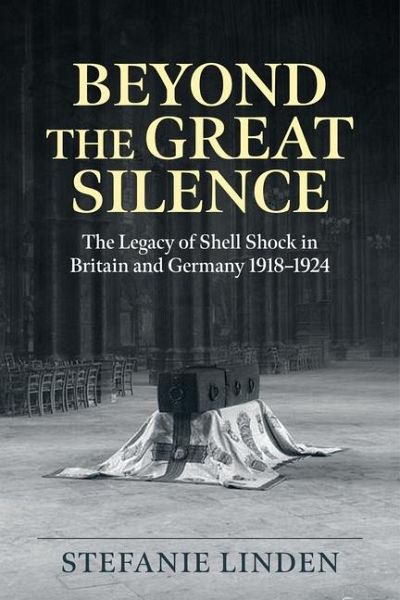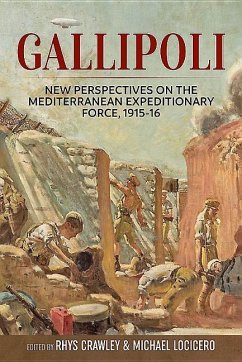
Beyond the Great Silence
The Legacy of Shell Shock in Britain and Germany 1918-1924
Versandkostenfrei!
Versandfertig in über 4 Wochen
50,99 €
inkl. MwSt.

PAYBACK Punkte
25 °P sammeln!
"Another splendid work of scholarship, beautifully written and brilliantly researched. There are few, if any, who know more about this topic than Dr. Linden, and this book will define the field for years to come." -- Simon Shorvon, Professor of Neurology, University College London Shell shock was the great leveller of post-war experience. Beyond the Great Silence: The Legacy of Shell Shock in Britain and Germany 1918-1924 traces the stories of shell-shocked soldiers and civilians. Medical authorities were reluctant to accept the link between illness and war and thus deprived shell shock victim...
"Another splendid work of scholarship, beautifully written and brilliantly researched. There are few, if any, who know more about this topic than Dr. Linden, and this book will define the field for years to come." -- Simon Shorvon, Professor of Neurology, University College London Shell shock was the great leveller of post-war experience. Beyond the Great Silence: The Legacy of Shell Shock in Britain and Germany 1918-1924 traces the stories of shell-shocked soldiers and civilians. Medical authorities were reluctant to accept the link between illness and war and thus deprived shell shock victims not only of war pensions but also of a much-needed explanation for their suffering. The rise of shell shock exemplifies the traumatic experience of the Great War. It has transcended its original meaning as a medical concept in historical and cultural discourse. Throughout the war military medicine of all combatant nations faced similar challenges and had to ensure the fighting strength of their forces in the face of increasing numbers of traumatized soldiers. Following the Armistice, the former Allied and Central Powers were in very different situations. Whereas London returned to a period of relative stability, Berlin was transformed into the chaotic center of a failed state. For the traumatized soldiers treated at the Berlin Charité or the London National Hospital, this did not make much of a difference - hospitals continued to operate in both capitols with surprising efficiency, and the trauma of war only knows victims, no victors. Beyond the suffering caused by shell shock, many veterans suffered further humiliation war pension denials because they had been relabeled with a neurological diagnosis that was unrelated to war service or were branded as 'psychopaths' with inherited mental weakness. The medical system was thus quick to cut the link between the illness of veterans and war experience. Therefore, many ex-servicemen were cut-off not only from pensions but also from an explanation for their suffering. Beyond the Great Silence combines the personal experience of the traumatized military and civilian patients with contemporary medical literature and press reports to provide the cultural background for the varying presentations of shell shock and responses of medical professionals and wider society. Shell shock was a deeply political concept, and its history can only be understood against the backdrop of the revolutionary changes to European society in the immediate aftermath of war.












